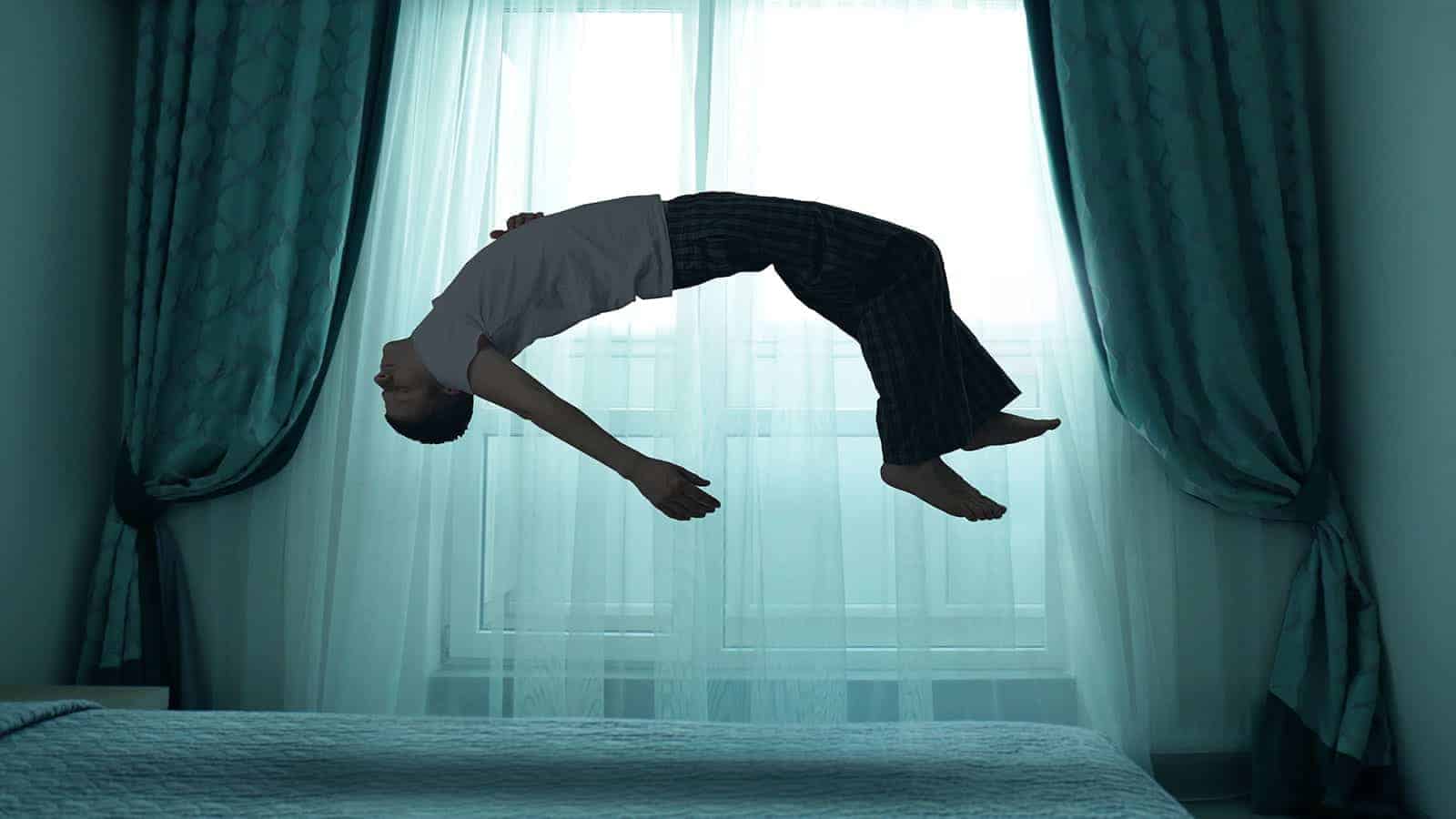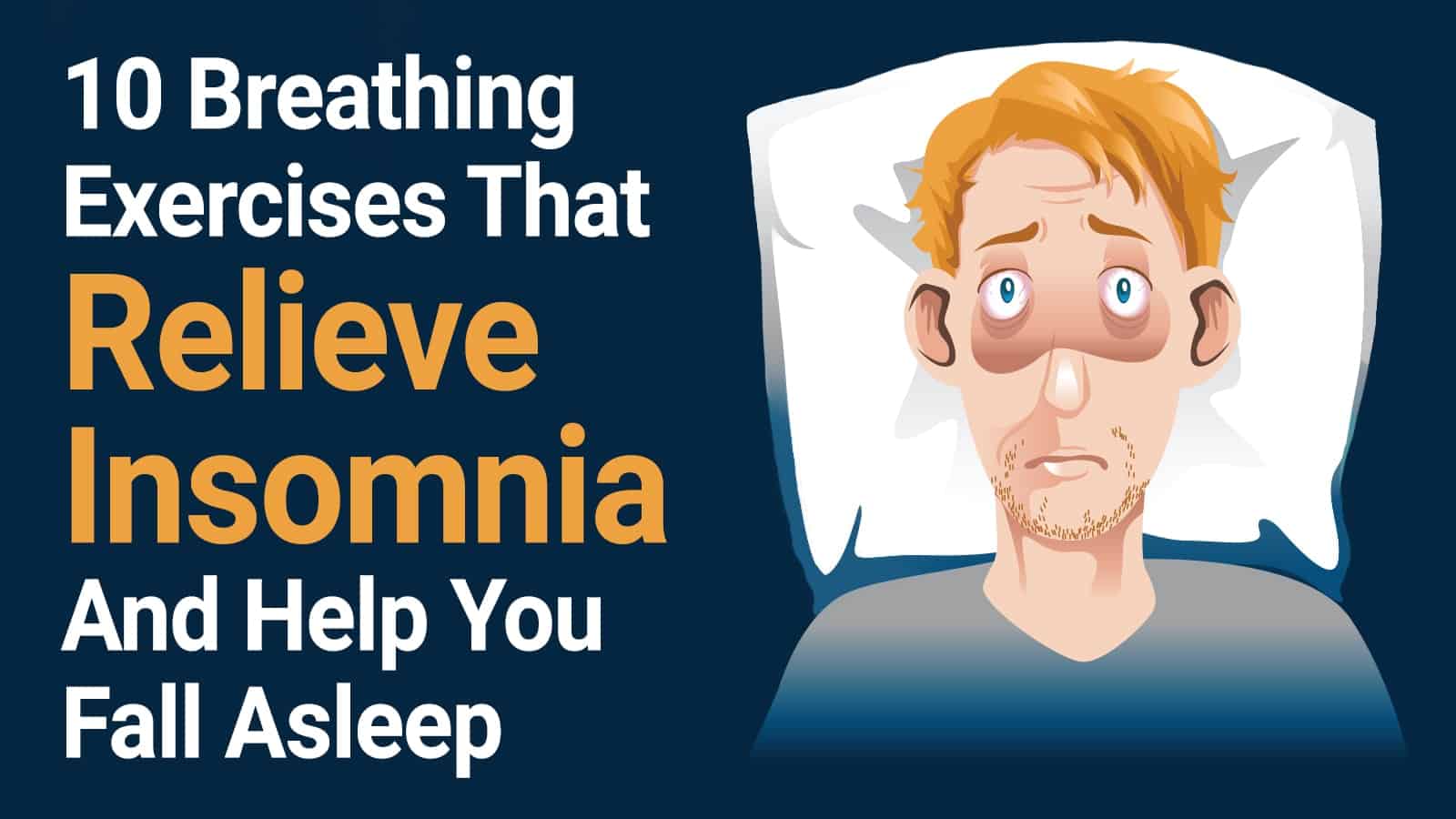If you’ve experienced sleep paralysis, you aren’t alone. Many people experience the phenomenon at some point in their life, and 28.3% of students report having experienced it (1). Here’s what it is:
It Can Be Terrifying
You’re not entirely sleeping during nighttime paralysis, and that’s what’s so terrifying about sleep paralysis. You may try to scream, but you can’t.
What It Isn’t
Paralysis during sleep is not caused by supernatural phenomena, but many people do believe that they are experiencing something supernatural while in paralysis during sleep. Therefore, the condition can be completely treatable if the cause is found!
These Are The Four Main Causes Of Sleep Paralysis
1. A Medical Condition May Be Causing Your Paralysis Episodes
Nighttime paralysis can be caused by sleep disorders, but it can also be caused by conditions that seem to have nothing to do with sleep. These are some of the most common examples of medical conditions that may result in paralysis during sleep:
Narcolepsy Can Cause Frequent Nighttime Paralysis
Individuals who suffer from narcolepsy typically have frequent nighttime paralysis along with vivid dreams. This is due to the disturbances in REM sleep that occurs as a result of the disorder.
Treating Sleep Apnea Can Be An Effective Treatment For The Condition
Sleep apnea is a disorder that causes breathing problems during the night, and this can awaken individuals during the body’s natural REM paralysis. The condition can be treated with a CPAP machine, and a sleep study is needed to diagnose it.
In Some Cases, Psychiatric Problems Are To Blame
Psychiatric disorders are known to disrupt the sleep cycle. Here are some examples of psychiatric disorders that are especially likely to result in nighttime paralysis:
- Bipolar Disorder: Bipolar disorder causes significant alterations in the sleep wake cycle that leads to periods with little sleep that often alternate with periods with excessive sleep. The alterations in the sleep wake cycle of people who suffer from bipolar I disorder is much more pronounced than those who suffer from bipolar II.In addition, many individuals with bipolar disorder suffer from anxiety, and this can also lead to the condition. Mania is particularly likely to lead to sleep paralysis, and that is because increased levels of arousal, irregularities in the sleep wake cycle, and agitation.
- Schizophrenia: Schizophrenia can also cause severe alterations in the sleep wake cycle that results in paralysis during the night, and these changes can follow very unpredictable patterns. However, there are several other reasons that schizophrenia could make an individual more prone to the condition.Schizophrenia may be caused by over-activity in the part of the brain that’s responsible for REM sleep. Furthermore, schizophrenia often causes vivid hallucinations, and the imagery, sounds, and voices from the condition can keep sufferers awake at night. As a result, sleep patterns often become highly irregular, and this increases one’s risk of experiencing nighttime paralysis.Individuals who suffer from schizophrenia tend to have impaired logic, and this means that sufferers are likely to attribute nighttime paralysis occurrences to supernatural phenomena. This can cause extreme fear and fuel delusions, and this also creates a vicious cycle by heightening nighttime anxiety.
- Clinical Depression: People who suffer from clinical depression typically do not sleep as well as those without the condition, and this can result in paralysis during sleep.
- Panic Disorder: Nighttime panic attacks can wreak havoc on your mental health, and they are thought to result in paralysis during sleep for some sufferers. In fact, 35% of people with sleep paralysis report having had a panic attack (2).
Check out this link for more info on improving your mental health.
2. Stress And Anxiety Can Trigger Paralysis During Sleep
If you need to de-stress, consider these tips:
- Prior to going to bed, consider going through a routine to decompress and relax, such as taking a warm bath.
- Write down any thoughts that are bothersome to you.
- It’s best to create a sleeping environment where the light levels are quite low, and it’s also important to make sure that the environment is the right temperature for sleeping.
What Kinds Of Stress Are Especially Likely To Lead To Nighttime Paralysis?
While there are many types of stress that can lead to paralysis during sleep, these are some of the most noteworthy examples:
Clinical Anxiety Disorders May Trigger It
Your anxiety may be causing you to remain alert when your body is attempting to “shut down” and go into the paralysis of the dream state, and this can result in nighttime paralysis. Here are some examples of anxiety disorders that are likely to lead to paralysis during sleep:
- Generalized Anxiety Disorder: Individuals who suffer from generalized anxiety disorder often spend a large amount of time worrying about various potential future events, and this can cause increased arousal during the night.
- OCD: Often, individuals with OCD have obsessive ways of thinking during the evenings, and this can make it harder to wind down and go to bed.
- Certain Phobias: Individuals who tend to have a fear of the dark are likely to experience anxiety and arousal that makes paralysis during sleep more likely when sleeping in darkness, but sleeping with a light on can also increase one’s level of arousal and increase the chance of paralysis.
Successful treatment of anxiety disorders can be an effective sleep paralysis treatment.
PTSD Can Lead To Paralysis During Sleep
Many PTSD sufferers experience flashbacks through dreams, and this can lead to waking up while in a paralyzed state. Here’s what you need to know about PTSD and nighttime paralysis:
- Flashbacks can potentially occur through dreams at any time, and there is not always a noticeable trigger that was experienced during the day. However, it’s especially common for flashbacks to occur through dreams if one experiences a trigger during the day.
- In some cases, individuals who have paralysis during sleep as a result of PTSD will experience hallucinations of past traumatic events during the paralysis.
If You’re Distressed By Supernatural Beliefs, This Could Be The Culprit
Many people have supernatural beliefs that result in nighttime fear and anxiety. In fact, some experts believe that paralysis during sleep is to blame for many reports of supernatural events, and these are some examples of things that people have experienced while paralyzed in REM sleep:
- Demonic Encounters: Many people report hallucinations during the paralysis that involve demonic entities, and these occurrences are especially distressing and more common among individuals who believe in these occurrences.
- Extraterrestrial Visitation: Some people who experience paralysis during sleep encounter hallucinations that involve extraterrestrials, and these hallucinations are especially common and disturbing to individuals who have a strong fear and belief in these alleged encounters.
- Sightings Of “Shadow People”: Some people have a belief in mysterious sightings of what are referred to as “shadow people”.
- Ghost Encounters: Individuals who have a strong belief in and fear of ghosts sometimes see them during the paralysis, and this can be especially distressing for individuals who have a strong belief in the phenomenon.
3. An Irregular Sleep Cycle May Be To Blame
Having an irregular sleep cycle can make it more difficult for your body to regulate REM sleep properly. In some cases, improving your diet can be an effective sleep paralysis treatment and give you a more regular sleep pattern.
Shift Work And Jet Lag Is A Common Trigger
The effects of this form of mild sleep deprivation vary significantly from one individual to another, but some people find that it is not possible to sleep without suffering from episodes of nighttime paralysis. However, taking a bit of time to get relaxed prior to going to bed and letting go of the day’s anxieties can help to prevent this cause of nighttime paralysis in some cases.
Insomnia Can Be A Cause
Extended sleep deprivation causes severe disturbances in REM sleep, and this often leads to extremely vivid dreams and sleep paralysis. That’s because REM sleep has been underactive for an extended period of time, and this results in a rebound effect that can lead to sleep paralysis. Taking steps to avoid insomnia can be an effective sleep paralysis treatment.
Alcohol And Drug Use Can Lead To Nighttime Paralysis
There are many ways that alcohol and drug use can increase the chances of nighttime paralysis occurring, and taking steps to avoid these effects can be an effective sleep paralysis treatment. Drinking coffee or taking other substances that promote wakefulness prior to bedtime can result in sleep paralysis due to increased levels of arousal during sleep. Here’s what you need to know about treating nighttime paralysis if drug or alcohol use is the cause:
- Avoid Caffeine Prior To Bed: It’s best to avoid all caffeinated beverages prior to bedtime, and that includes caffeinated sodas, energy drinks, and coffee.
- Alcohol Doesn’t Actually Help You Sleep Well: Alcohol may allow you to fall asleep more quickly, but your level of arousal will be higher. This will increase the chances that you’ll have a paralysis episode.
- Consider The Effects Of Medications: It’s not uncommon for medications to disrupt your sleep cycle. In fact, certain sleep medications can make you more prone to the condition.
- Avoid Illegal Drugs: Certain illegal drugs that have a wakefulness-promoting effect can cause users to spend many nights without sleep, and this causes severe disturbances in REM sleep. Also, some sedatives can have a rebound effect and result in increased arousal during the night.
Final Thoughts On Sleep Paralysis Treatment
If you’re suffering from paralysis episodes at night, there is hope. The condition can sometimes have a medical cause, and there can be treatments available.
In addition, there are steps that you can take yourself to prevent episodes from occurring. The information in this article offers a good start on determining how to treat the condition.














 Community
Community

